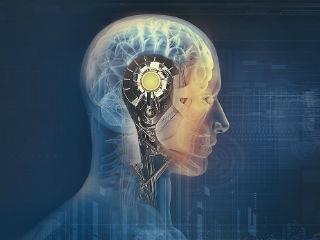
World Bank launches first bond linked to the SDGs
By: EBR | Wednesday, March 15, 2017
The World Bank’s International Bank for Reconstruction and Development (IBRD) has issued its first bond linked to the UN Sustainable Development Goals (SDGs) as part of the global effort to combat climate change, end poverty and promote equality

3 dark trends that could destroy the web
By: EBR | Tuesday, March 14, 2017
Today marks 28 years since I submitted my original proposal for the world wide web

How to ensure future brain technologies will help and not harm society
By: EBR | Tuesday, March 14, 2017
Thomas Edison, one of the great minds of the second industrial revolution, once said that “the chief function of the body is to carry the brain around.”

Reflections on MWC 2017 – The Next Element
By: N. Peter Kramer | Monday, March 13, 2017
The Mobile World Congress 2017 is over, it was – as usual- an overwhelming experience and probably ‘the biggest annual TMT show on earth’

4 ways to unleash the electricity grid of the future
By: EBR | Friday, March 10, 2017
The electricity industry is in the midst of a transformation, as technology and innovation disrupt traditional models from generation to beyond the meter

A day without women? This is what it would look like
By: EBR | Friday, March 10, 2017
When you get to the office this Wednesday, look around. Do you spot anything different? Notice anyone missing? There’s a good chance you’ll see far fewer of your female colleagues than usual

Should economists be worried about artificial intelligence?
By: EBR | Friday, March 10, 2017
This post highlights some of the possible economic implications of the so-called “Fourth Industrial Revolution” — whereby the use of new technologies and artificial intelligence (AI) threatens to transform entire industries and sectors.

Trump claims ‘A new chapter of American greatness’
By: EBR | Wednesday, March 1, 2017
President Donald Trump has promised a ‘renewal of the American spirit’, in his first speech to Congress. He claims in his presidential address ‘new chapter in American greatness’

Is there a future for the Democrats?
By: EBR | Tuesday, February 28, 2017
The American Democrats have chosen a new chairman, Obama’s labour secretary, Thomas Perez

Parallel lives: how the Brexit vote revealed Britain’s divided culture
By: EBR | Tuesday, February 28, 2017
How did our culture became so polarised – and what can Richard Hoggart’s The Uses of Literacy, written 60 years ago, teach us about how we live today?

Too hot, too cold. What porridge can tell us about women in science
By: EBR | Friday, February 24, 2017
In 2017, there have been two important landmarks for women in science: first, astronomy trailblazer Vera Rubin passed away, and second, we passed the eighteenth anniversary of Larry Summers' (in)famous speech as President of Harvard University

5 lessons for launching an emerging technology
By: EBR | Thursday, February 23, 2017
Technologies develop in silos, with little connection and almost no lessons flowing from one to the other

Is billionaire Soros ”undermining democracy” in Eastern European member states?
By: EBR | Thursday, February 23, 2017
The Hungarian-born US billionaire George Soros has been accused of "undermining democracy" in several EU member states. It is claimed that Soros and groups backed by him have sought to secretly influence politics in Hungary as well as other east European countries

7 ways to make travel safer
By: EBR | Wednesday, February 22, 2017
An unprecedented number of people are on the move, and the numbers are only going to keep rising. International arrivals rose from 25 million in the 1950s to 1.2 billion in 2016, and are expected to reach nearly 2 billion by 2030

Greece’s lenders shift from austerity to reforms
By: EBR | Tuesday, February 21, 2017
The Eurogroup took a small step on Monday (20 February) towards the completion of the second review of Greece’s €86 billion rescue programme, placing the emphasis on reforms over austerity to reduce the country’s huge debt pile

The moral dilemmas of the Fourth Industrial Revolution
By: EBR | Friday, February 17, 2017
Should your driverless car value your life over a pedestrian's? Should your Fitbit activity be used against you in a court case? Should we allow drones to become the new paparazzi? Can one patent a human gene?

Which countries have the most immigrants?
By: EBR | Friday, February 17, 2017
One of the biggest mass movements of people in recent history continues to dominate news headlines and political discourse

Why we should resist the idea and practice of ‘post-truth’
By: EBR | Thursday, February 16, 2017
In November 2016, after what was by any measure a tumultuous year for Europe and the world, Oxford Dictionaries chose ‘post-truth’ as its Word of the Year

Britain can become ‘global leader’ in agricultural trade outside EU – study
By: EBR | Saturday, February 11, 2017
Adopting a market-oriented agricultural policy after leaving the EU could make Britain a world leader in agricultural trade in the decade to come, according to a briefing published on Thursday (2 November) by leading UK think tank Chatham House.

The digital revolution is destroying our democracies. It doesn’t have to be that way
By: EBR | Friday, February 10, 2017
Amid the waves of populism currently engulfing many Western democracies, it’s all too easy to forget the core purpose of governments; what the men and women who roam the corridors of power, and the civil service who support them, are actually supposed to do



 By: N. Peter Kramer
By: N. Peter Kramer
